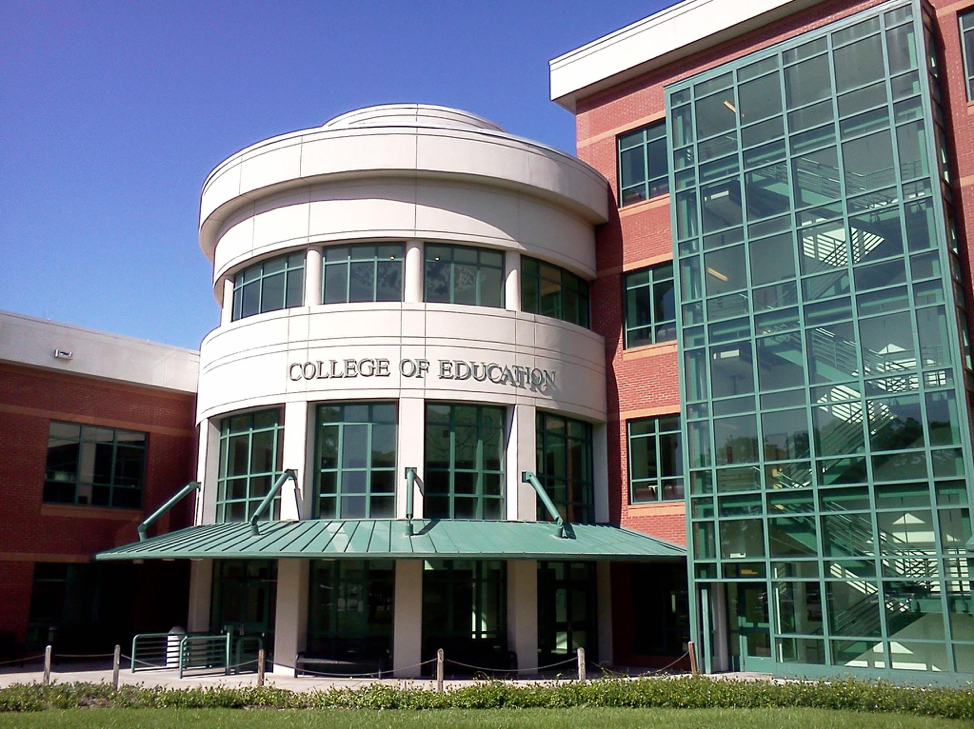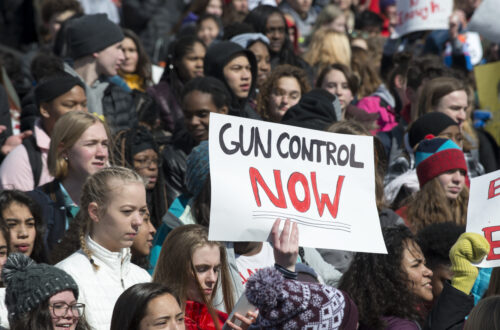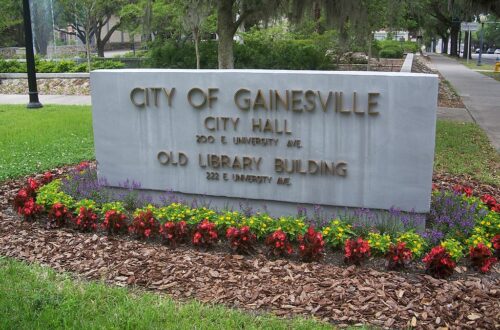Last month, the University of South Florida released the decision that undergraduate programs in the College of Education providing teacher preparation would be phased out in “strategic realignment” due to a drop in enrollment over the past decade. Backlash from surrounding school districts, public officials, faculty and the university’s board of trustees has led to a change in the proposal, which intends to reduce the graduate program’s offerings.
Pinellas, Hillsborough, Pasco, Polk, Manatee and Sarasota counties depend heavily on USF’s undergraduate program. In a resolution criticizing the university’s original decision, Pinellas County Schools states that they hire 600 to 800 new teachers each year – where 20-25% of new-hires are USF graduates. Within their Oct. 27 resolution, they encouraged USF to find alternatives to program closure in order to best serve the Tampa Bay region and Florida.
USF President Steven Currall, USF Provost Ralph Wilcox, and interim Dean of the College of Education Judith Ponticell cited a national trend in decreased demand for four-year undergraduate degrees as the driving force of their decision to implement cuts. In USF’s case, there has been a 63% decrease in undergraduate enrollment within the last decade.
The discussion about the future of the college concerns budget cuts and a drop in enrollment. Enrollment dropping in the College of Education has impacts that go beyond Florida. According to the Economic Policy Institute’s report, “From the 2008-2009 to 2015-2016 school years, there was a 15.4% drop in the number of education degrees awarded and a 27.4% drop in the number of people who completed a teacher preparation program.”
The dwindling pool of applicants could be a consequence of the average weekly pay penalty in comparison to other college graduates. With public school teachers earning 21.4% less than comparable professions, the pursuit of an education degree declines.
Recently, Gov. Ron DeSantis signed House Bill 641, Funds for the Operation of Schools, which will increase starter teacher salaries by raising the minimum pay for full-time classroom teachers. This bill serves as a step to alleviating the teacher shortage and possibly increasing demand for degrees in education.
Although the demand for education degrees from students has decreased, the Tampa Bay area still encounters educational and employment needs.
A Zoom conference hosted by Pinellas County Schools on Oct. 30 included superintendents and Tampa Bay leaders in education discussing USF’s decision to close the College of Education, and the impacts this decision will have on the future of teacher preparation for the region’s school districts. Over 230 individuals in the community and Ponticell attended.
This community conversation began by discussing the widespread need for teachers in the region. Stacy Baier with the Pinellas Education Foundation stated that there are tens of thousands of open teaching positions each year, emphasizing the existing teacher shortage.
Kurt Browning, Superintendent of Pasco County Schools shared, “Districts across the state are faced with teacher shortages. We hire on average about 525 teachers annually in Pasco. We get 30% of our teachers from the University of South Florida. Not having the undergraduate program at USF… it is going to have horrible, tremendously negative impacts on us.”
Many of the community leaders echoed the voices of frustrated and concerned superintendents. Overall, USF’s undergraduate program and pipeline partnership with the surrounding districts strengthens the schools’ staff and quality of education.
Besides backlash and concern from educators, U.S. Rep. Kathy Castor also expressed concern over USF’s plan. She wrote a letter on Nov. 19 urging the university to propose a budget cut that retains the education programs to best serve the public through providing economic opportunities for students and families, public schools, and the entire Tampa Bay region at large.
Tampa is the third largest city in Florida and grows at an annual rate of 2.58%. The city’s population increased 23.23% since the most recent census. In 2019, Hillsborough County schools had an 8.5% jump in comparison to first day attendance in 2018.
“I also am aware of the population trends in our area and the enormous need for teachers,” Castor wrote. “While other institutions of higher education such as the Colleges of Education at the University of Florida and Florida State University prepare teachers, those who graduate from USF remain the largest single provider at this time.”
As the largest teacher preparation program in the state, its closure poses an imminent threat to the public education in surrounding school districts that are already experiencing an increased demand for teachers.
The original phasing out plan still had the potential to admit undergraduates into a five-year graduate program. However, the most recent statement on Nov. 20 claims the university will likely reduce the number of offerings within its undergraduate program rather than eliminate all offerings within the college.
Currently, the undergraduate program offers nine degrees, 15 majors, five minors and 18 concentrations. What a reduction in the college’s offerings will look like remains vague.
“Let us reiterate that no final decisions have been made regarding the College of Education,” the Nov. 20 statement from Currall, Wilcox and Ponticell said.
Although USF reversed its previous plan to re-imagine the undergraduate program, there are no final decisions on the fate of the College of Education. Criticism from superintendents and public officials promises some hope for the future of the program and Tampa Bay’s education system.
Featured image: USF’s College of Education. Unmodified photo by James E. Scholz used under a Creative Commons license. (https://bit.ly/3pLRJ43)
Check out other recent articles from the Florida Political Review here.





